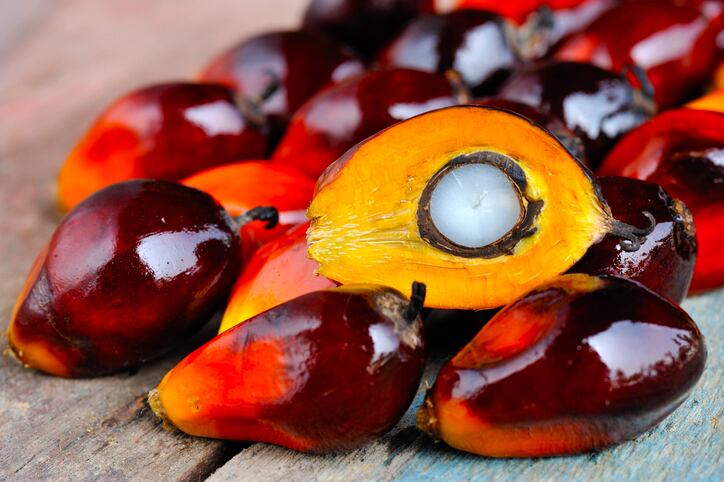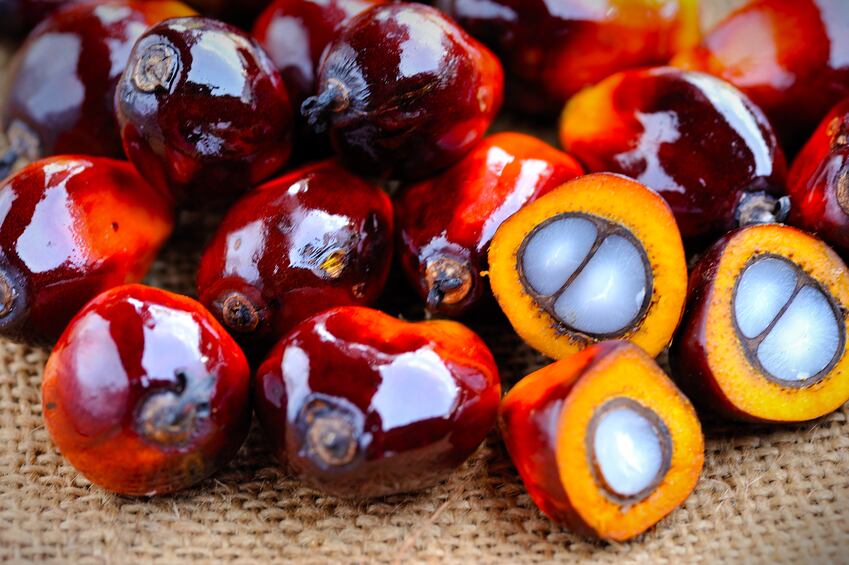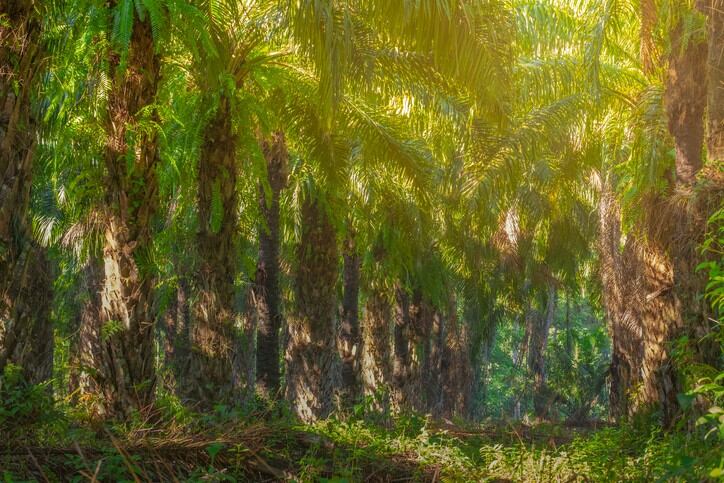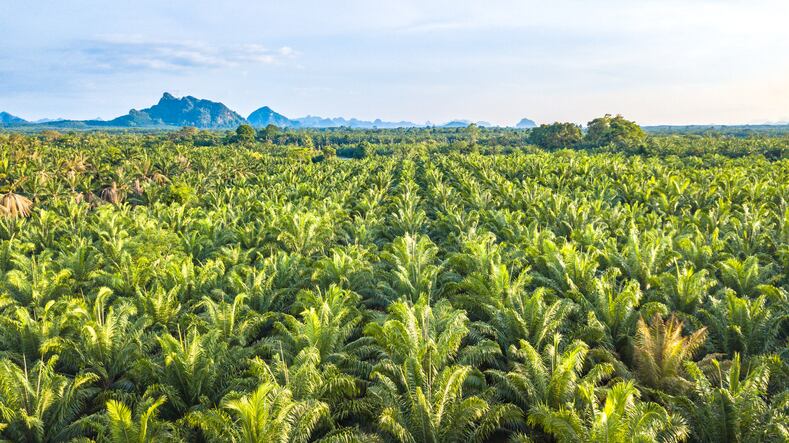The refinery, inaugurated in 2016 and located in Limeira around 150 km from São Paulo, allowed the palm oil company to add several new specialty ingredients to its portfolio, such as palm, cotton, and soybean oil blends, which have a lower saturated fat content, and cocoa butter substitutes (CBS).
“It’s a nice moment for us, we’re seeing the benefits of the investment in the refinery,” André Gasparini, commercial director, said. “The best-selling products are CBS because before we didn’t have any CBS producers in Brazil, it was all imported before from Asia, but now we are producing here internally. For customers that’s good because it takes less time to arrive – they don’t have to wait 90 days in advance.”
Gasparini said the company was seeing demand for its zero trans fat ingredients even before Brazil’s food safety authority ANVISA announced a ban on the ingredient in December last year.
Sustainability
Part of Agropalma’s supply chain is vertically integrated but it also works with around 190 family farmers that supply it with fresh fruit bunches. Out of a total 107,000 hectares of land, around 39,000 is its own plantation of which 4,000 hectares are certified organic.
It also has around 64,000 hectares of protected forest reserve. “This is an untouchable forest reserve with strict protection,” said Gasparini, speaking to FoodNavigator-LATAM in São Paulo last year. “We have a patrol of 30 people that everyday watch and patrol the reserve to avoid hunting, logging and plant material extraction.”
One hundred percent of Agropalma’s production is certified sustainable by the RSPO, both Identity Preserved (IP) and segregated (SG).
All of Agropalma’s mills are certified IP under the Roundtable on Sustainable Palm Oil (RSPO) standard and when it delivers its oil to refineries it is mixed with other sources, making it SG. However, it also has a separate line of IP organic palm oil.
The company is a founding member of the Palm Oil Innovation Group (POIG) which was established by stakeholders, including palm oil suppliers, manufacturers, and NGOs to drive further sustainability in the palm oil supply chain with stricter requirements than RSPO.
In 2012, Agropalma topped Greenpeace’s palm oil sustainability scorecard, achieving full marks for its forest protection and peatland protection initiatives and for certifying then at least half of its palm oil under the RSPO certification program.
These efforts are a major draw for food manufacturers, Gasparini said. “Big companies have a lot of problems already; they don’t need to have more trouble buying from a supplier that has problems with sustainability and contaminants.”
Although Brazil is a major global palm oil producer – its output in 2018 was 134,960 tonnes according to estimates by the Food and Agriculture Organization (FAO STAT), the country is a net importer of the commodity.
Most of Agropalma’s production - around 90% - is for the domestic market while around 10% is exported to Europe.
Careful analysis before working with new farmers
Túlio Dias Brito, head of sustainability and corporate social responsibility at Agropalma, said its main strategy for increasing output was by increasing yields. “We started in 1982 so for around 10 years now we have been replanting,” he told us. “The average life span of an oil palm is between 25 and 30 years but sometimes it can be shorter, and with new seeds, we expect to have better yields”
It is also looking to increase the number of farmer suppliers but Tulio said it does this “very carefully”.
“We need to do land-use change analysis and prove there was no recent deforestation linked to that land before they began cultivating palm.”
Agropalma conducts these checks itself, which it then has verified by the HCV Resource Network, an RSPO-accredited body that works to preserve areas of high conservation value. It conducts a peer review of Agropalma’s assessment and, if it gives the green light, Agropalma engages the farmer.
Keeping contaminants low
Another issue on its radar is contaminants such as 3-MCPD and glycidyl esters in palm oil, that are known carcinogens.
“We can blend with different oils to reduce these contaminants but reducing the temperature is the main issue for 3-MCPD,” Gasparini said. “Also, you must use fresh fruit and our location in Tailândia [a municipality in the northern state of Pará in Brazil] means we can extract the oil and send to the refinery a very fresh oil.”
Once the fresh fruit bunches are picked they can reach Agropalma’s mill within 24 hours. From there, the crude palm oil is transported to the refinery by barge which takes around 20 hours – considerably quicker than if the crude palm oil was being imported from Asia, Dias Brito said.




